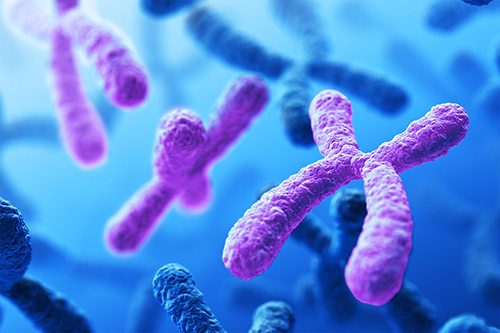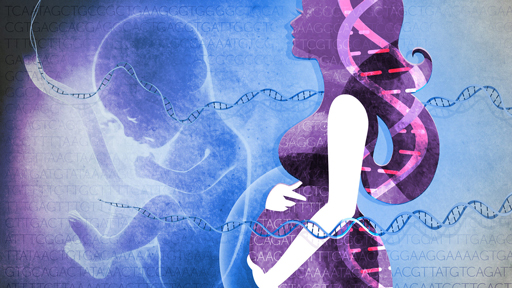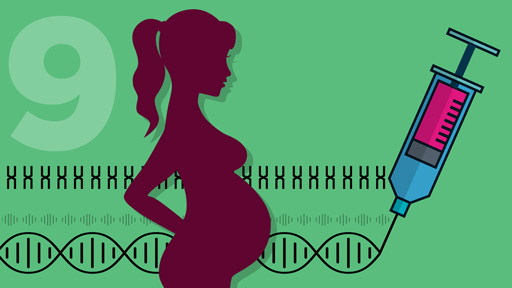Women often request noninvasive screening tests to detect genetic conditions. These tests, however, typically focus only on Down syndrome and other common trisomies. A trisomy is a condition in which there are three instances of a certain chromosome instead of the standard two.
"Extending our analysis to all chromosomes allowed us to identify risk for serious complications and potentially reduce false-positive results for Down syndrome and other genetic conditions," said Diana W. Bianchi, M.D., senior author of the study and chief of the Prenatal Genomics and Therapy Section at NIH's National Human Genome Research Institute (NHGRI). Dr. Bianchi is also the director of NIH's Eunice Kennedy Shriver National Institute of Child Health and Human Development (NICHD).

The investigators analyzed DNA sequence data from nearly 90,000 samples of maternal plasma, the liquid portion of blood after all cells have been removed. Of these samples, 72,972 came from a U.S. cohort and 16,885 came from an Australian cohort. For each, researchers calculated a normalized chromosome denominator quality (NCDQ), which measures the likelihood that a sample has the standard two copies of each chromosome. Those with an NCDQ of 50 or below were flagged for further evaluation.
In the U.S. cohort, 328 (0.45 percent) samples were flagged and ultimately classified as abnormal. In the Australian cohort, 71 (0.42 percent) samples were deemed abnormal, 60 of which contained a rare trisomy. Trisomy 7 was observed most frequently in both study cohorts, followed by trisomies 15, 16 and 22.
Pregnancy and other outcome data were available for 52 of the 60 cases of rare trisomies found in the Australian cohort. Notably, researchers linked 22 samples with early miscarriage (occurring before 11 or 12 weeks gestation), including 13 of 14 samples with trisomy 15 and 3 of 5 samples with trisomy 22.
"We found that pregnancies at greatest risk of serious complications were those with very high levels of abnormal cells in the placenta," said Mark D. Pertile, Ph.D., co-first author of the study and head of the division of reproductive genetics at Victorian Clinical Genetics Services, part of Murdoch Childrens Research Institute in Melbourne, Australia. "Our results suggest that patients be given the option of receiving test results from all 24 chromosomes."
The study also includes authors from Illumina Inc., in Redwood City, California.
Reference:
Pertile, M., et al. Rare Autosomal Trisomies, Revealed by Maternal Plasma DNA Sequencing, Suggest Increased Risk of Feto-Placental Disease. Science Translational Medicine 2017.
The National Human Genome Research Institute (NHGRI) is one of the 27 institutes and centers at the NIH, an agency of the Department of Health and Human Services. The NHGRI Division of Intramural Research develops and implements technology to understand, diagnose and treat genomic and genetic diseases. Additional information about NHGRI can be found at: www.genome.gov.
About the National Institutes of Health (NIH): NIH, the nation's medical research agency, includes 27 Institutes and Centers and is a component of the U.S. Department of Health and Human Services. NIH is the primary federal agency conducting and supporting basic, clinical, and translational medical research, and is investigating the causes, treatments, and cures for both common and rare diseases. For more information about NIH and its programs, visit http://www.nih.gov
Contact
Jeannine Mjoseth
NHGRI Communications
301-335-8641



